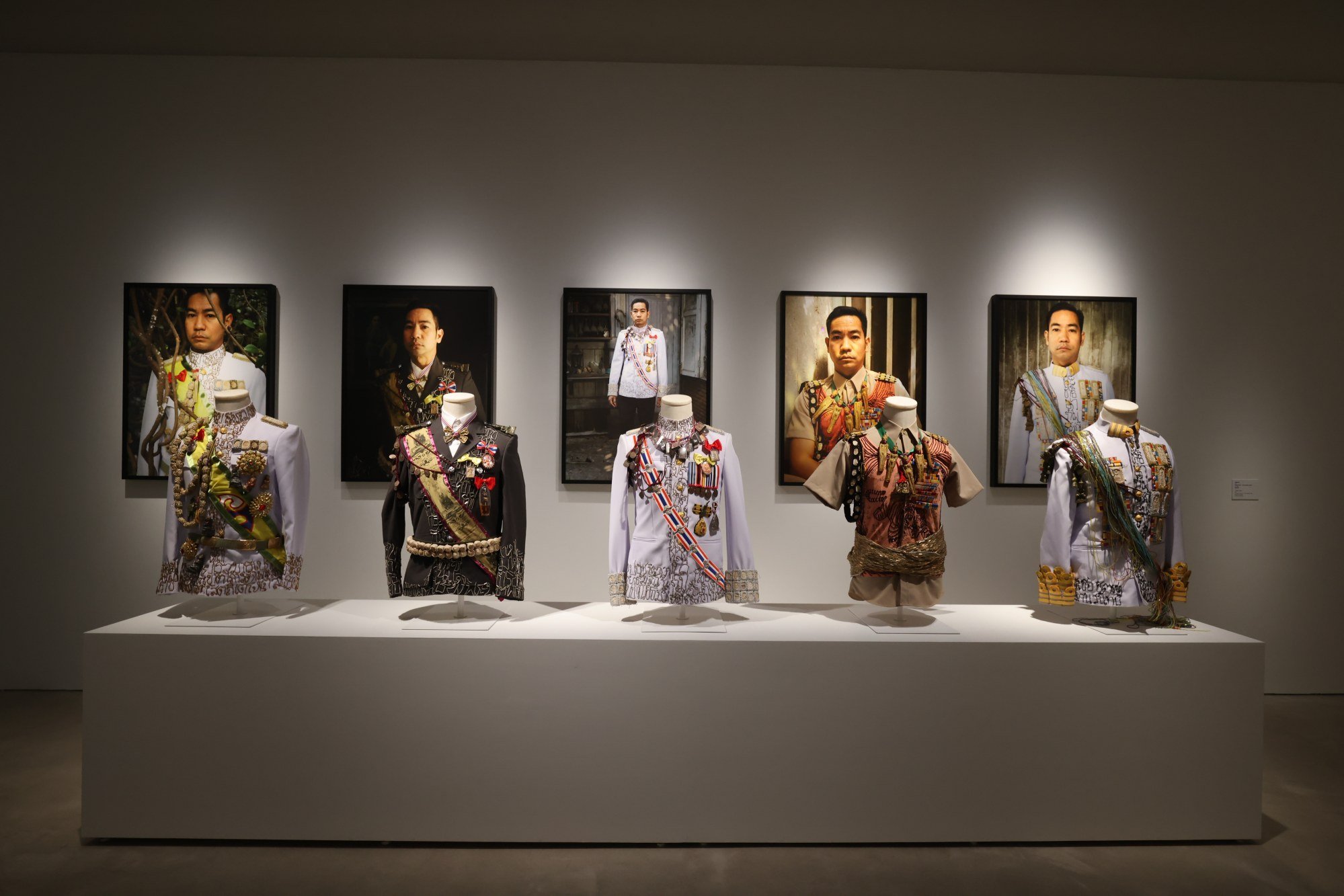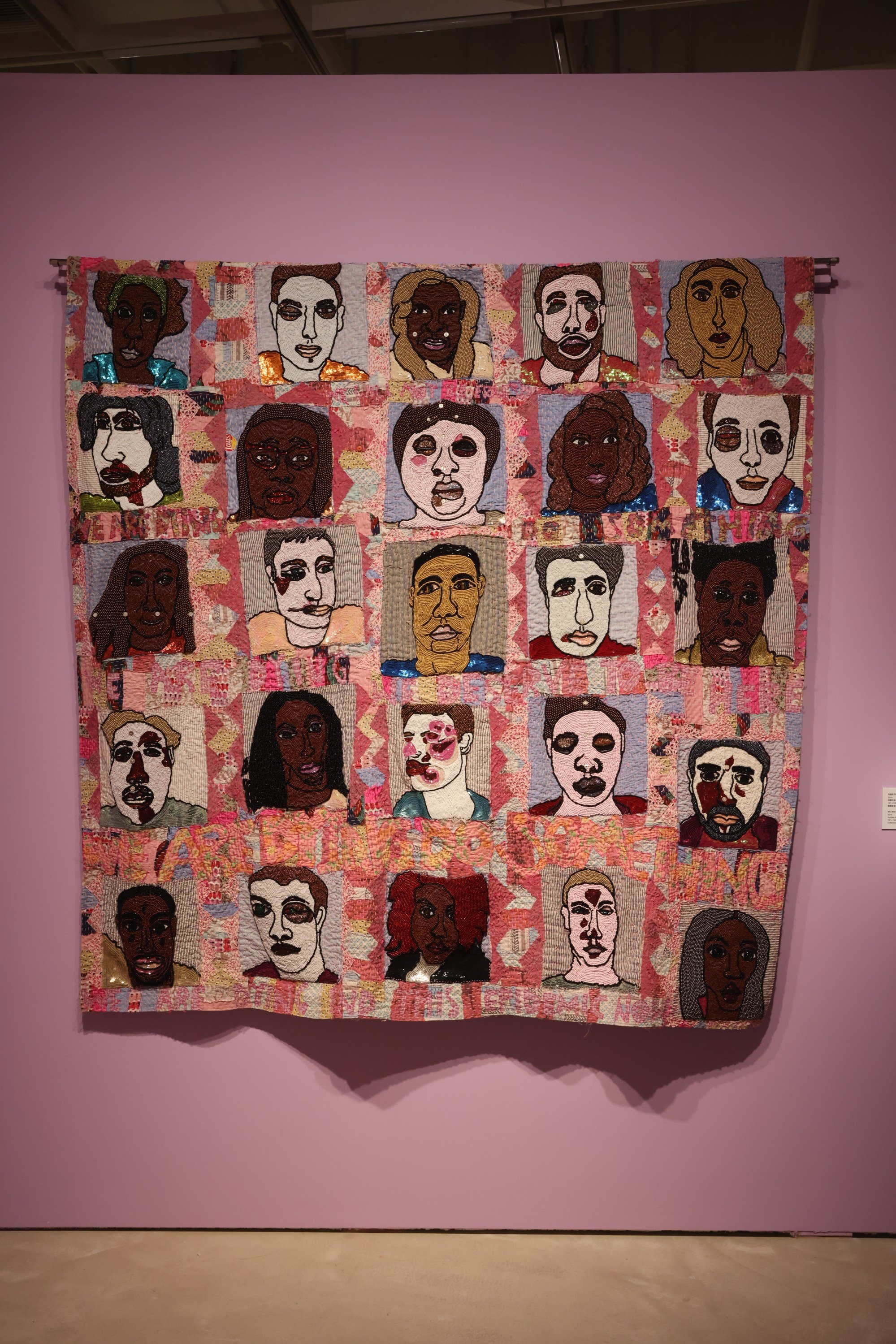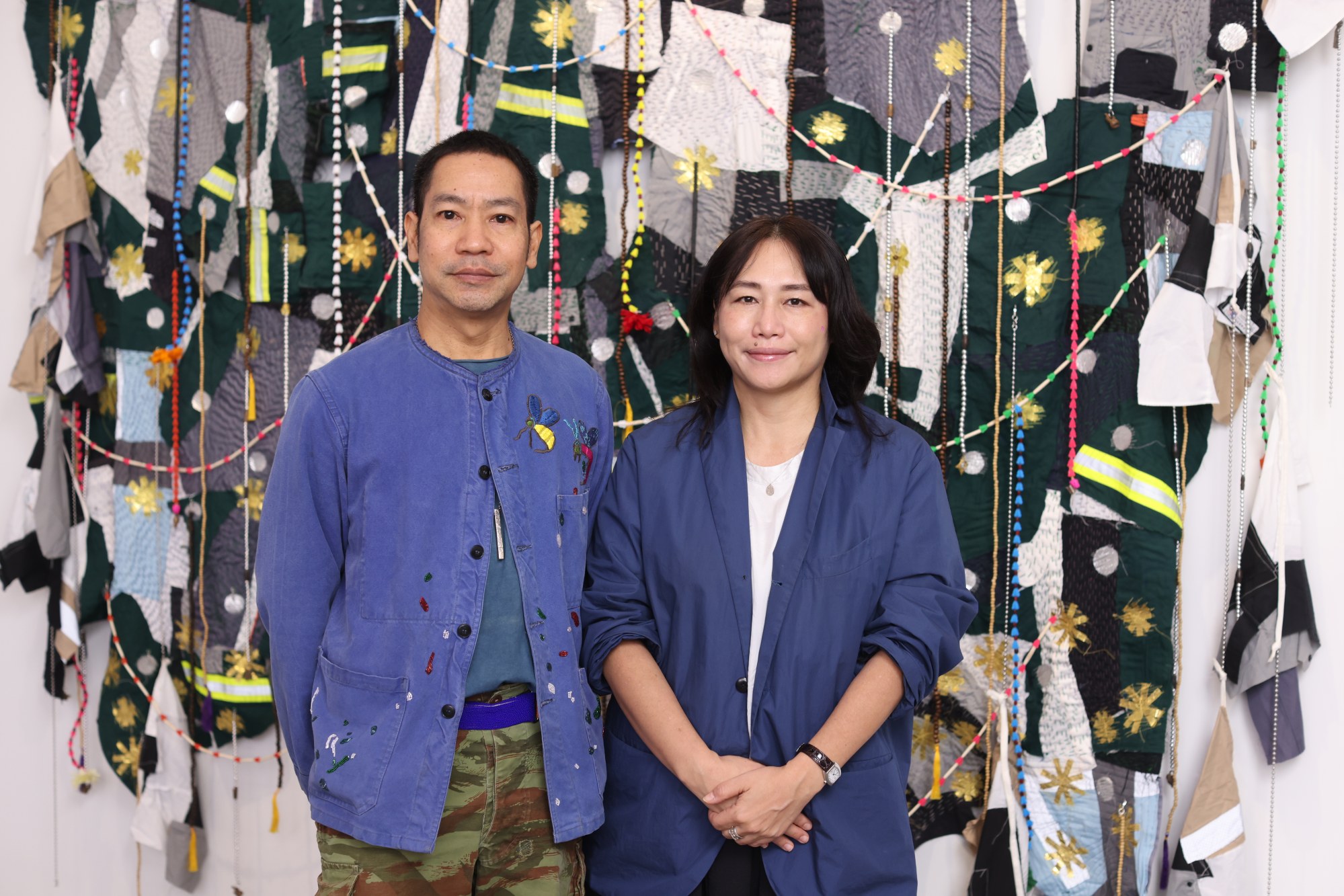
Thai textile artist who weaves social commentary into colourful works that belie their serious message has retrospective at Chat in Hong Kong
- Brightly coloured and accessible, Jakkai Siributr’s art, on show in Tsuen Wan, Hong Kong, contains powerful messages about gender, identity and equality
- Wall hangings in deceptively soft tones depict victims of homophobic violence; patchwork art made with refugee children reflects the pain of losing their homes
For art that is stunning, unusual, and strongly connected to social issues, head over to the Centre for Heritage Arts & Textile (Chat) in Tsuen Wan in Hong Kong’s New Territories to see a retrospective of Thai textile artist Jakkai Siributr.
Titled “Everybody Wanna Be Happy”, this is a showcase of two decades of Jakkai’s fine textile works that reveal the evolution of the 54-year-old Bangkok native as an artist and social commentator.
Jakkai has been using the medium of embroidery to engage with themes that exert a significant influence on Thai society.
His political awakening happened in 2006 when the military junta overthrew the elected government in Thailand, but the real catalyst for his political work stems from the growing polarisation between Thais, he says.

The bright colours and accessibility of his works belie the heaviness of the subject matter – he makes wearables such as upcycled military jackets embroidered with political messages, for example.
Through patchwork, embroidery, beadwork, stitching and adorning them with daily objects such as Thailand’s ubiquitous religious amulets, Jakkai offers different points of view about gender, identity and equality.

They draw in the eye: the soft colours of glass beads, or the glitter of metallic fabric cut into small squares. Closer up, you realise they depict scenes of violence such as villages destroyed by military attacks.
The heartbreaking series “There’s No Place” greets visitors in the spacious foyer at Chat. Large panels of embroidered cloth, and small patchworks produced by children and adults from displaced communities, reflect the pain of losing their homes.
“Just before Covid, I went to the Thai and Myanmar border, where there is a Shan refugee camp and I conducted embroidery workshops and storytelling to get to know the community,” he says.
He recalls how children, especially, who those had lived through traumatic events, often found it easier to communicate through art.

Once Covid erupted, making travel to the border impossible, Jakkai worked with Shan educational organisations in Chiang Mai, a city in northern Thailand, where he has a second home.
“I invited people to different workshops, asking them to embroider, in black and white or grey, on the same pieces that were colourfully embroidered by members of the stateless communities, so more privileged people could know about their situation, and get a feeling of working within limitations,” he says.
He pays all those who create art for him, so they are not charity cases, but meaningfully employed.
Other wall hangings are made of pretty beads in deceptively serene, pastel tones.

“See these? From afar, they may look like make-up. But they are bloody marks and bruises,” he says, pointing at a work called We Will Not Be Erased that is among three pieces on loan from Hong Kong’s LGBT-focused Sunpride Foundation.
The portraits are of gay activists who have been victims of homophobic violence.
In a way, Jakkai is playing a trick on his audience, lulling them into thinking there is little to challenge them here. But in fact, he tries to pull two opposites closer together, just as he is hoping to see less divisiveness in the world.

Among his earlier works are reflections on the widespread corruption in some Buddhist institutions. Lucky Ware (2008) is an installation with a beautiful silk patchwork by Jakkai based on an old folk Buddhist painting from Cambodia, with angels, arhats (those who have attained Nirvana) and devotees shading the Buddha with an umbrella as they play instruments, pray, or carry ritual objects.
In front of it, he has placed buckets filled with offerings that represent indulgences the ascetics are not supposed to engage in: cigarettes, condoms, beer, sweets and electronic mosquito killers (which would go against the monks’ ahimsa, or do no harm, vow).
“It really depicts the two worlds of Buddhism,” he says, “the Buddhist principles, right there in the painting, and what they have become in our modern society.”

Changing Closet invites the public to take selfies while wearing Muslim-style skullcaps (with hidden embroideries on the inside) from the south of Thailand, and military jackets heavy with symbolic embroidery.
Phayao-a-Porter is a new series of second-hand jackets that seem to be little more than a support for some amazing bead embroidery, all laden with social messages that address the environment, corruption and institutional violence.
During the Covid-19 pandemic, Jakkai created works honouring Thais who had lost their jobs, especially those employed in the tourism and service industries.
In a show called “Outworn” at Flowers gallery in Sheung Wan, on Hong Kong Island, large wall hangings made from deconstructed and reassembled work uniforms, at times in the shape of surgical masks, recall the social toll of the pandemic.
On top of this cloth collage, Jakkai has attached Thailand’s ubiquitous Buddhist amulets, chains, and round pandemic stickers reminiscent of those handed out to people who passed temperature checks in Thailand.
These are records of the fear and desperation of the time, when science seemed to have failed and everyone had to endure a cycle of calm and anxiety.
In their painful immediacy, these works address the pandemic without rhetoric or cliché. The tapestries record and allow us to process a trauma the whole world has been through.
“Jakkai Siributr: Everybody Wanna Be Happy”, Chat, The Mills, 45 Pak Tin Par Street, Tsuen Wan, New Territories. Daily, 11am to 7pm. Until February 13.
“Jakkai Siributr: Outworn”, Flowers Gallery, 49 Tung Street, Sheung Wan, Tuesday to Saturday, 12pm to 6pm. Until January 6

